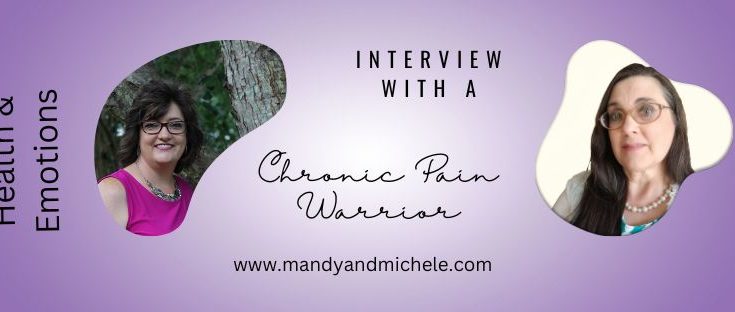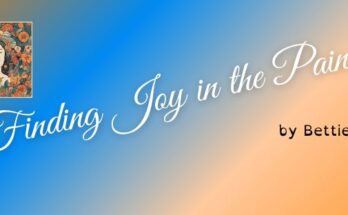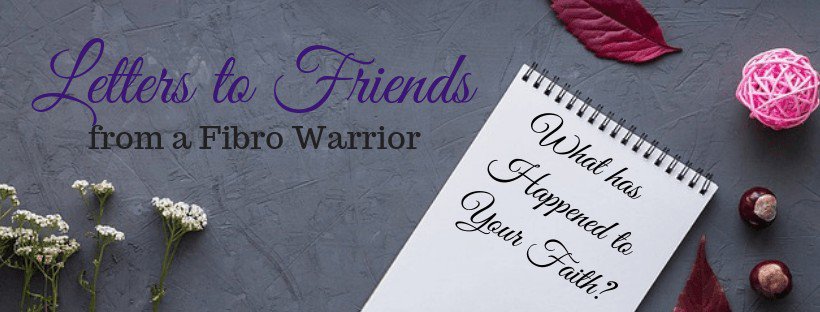Tammy and I have been friends for several years. She and I connected soon after I began writing about Chronic Pain. She has written books about grief and about taking your thoughts captive when life takes a turn. Even through her pain, she has been a great encourager to me. She agreed to share her story of P.O.T.S. and more with me this month.
P.O.T.S. Defined
Let me give you a quick explanation of what P.O.T.S. is. Postural Orthostatic Tachycardia Syndrome (P.O.T.S.) is a type of dysautonomia, a condition where the autonomic nervous system doesn’t work properly. P.O.T.S. specifically refers to a condition where the heart rate increases excessively when a person changes positions from lying down to standing up. This can cause symptoms such as dizziness, lightheadedness, fainting, and rapid heartbeat. P.O.T.S. is often diagnosed in young women, and while it can be a chronic condition, it is usually not life-threatening.
And Now Meet Tammy…

1. Share the short story of your chronic pain journey. What is your diagnosis? Share some about the journey to this diagnosis.

I don’t remember ever being pain-free. By the time I got a correct diagnosis, I had had 10 surgeries from different specialists. My feet hurt, so I saw a foot doctor, shoulder hurt, so I saw a shoulder doctor, knee hurt, so I saw a knee doctor, and so forth and so on. At the age of 46, I finally went to a doctor who looked at my whole medical history and said “I am certain you have P.O.T.S., go see a cardiologist. I am also certain you have Ehlers-Danlos hypermobility. Go see a geneticist.
At the time I had experienced so much pain for so long, and I was beginning to believe that everyone felt like I did, but I was too weak to live life through the pain. Depression and despair overshadowed every aspect of my life. Once both diagnoses were confirmed, I finally felt relief. Not relief from the pain, but relief from knowing there were real sources of pain and it wasn’t just weakness or failure on my part.
To date, I have had 18 surgeries and am delaying another three that need to be done. I have learned to wait until I am completely lame with whatever body part is messing up before conceding to going under the knife. The reason for this is that each surgery creates its own issues and pain related to those issues. I know each surgery changes one pain for another. I need to make sure that surgery brings a lesser pain than the one I am suffering from before surgery.
2. Throughout this time, how was your faith walk impacted? Did you lose faith? Get Stronger?
I used to pray for God to heal me. Over the years, I wondered “If God is a healing God, why won’t He heal me?”
I’d read the healing stories in the Bible and wonder why He healed people then but didn’t do so now. If He did so now, what was wrong with me that he won’t show up for me in the same way?
I wondered if God truly loved me, or if He had to let me be in His family because I checked all the boxes to accept salvation in Jesus’ name, so according to that He couldn’t reject me.
Mandy: Have you been watching The Chosen TV series? They have dealt with this twice now and I just start bawling.
I went through some really dark times and the P.O.T.S. and EDSh progressed. I lost all the things that made me who I was. Brain fog and memory issues made it to where I was no longer sure where something was, couldn’t remember specific details or conversations, and lost the ability to function in the daily mental capacities that I’d used to run our household. I had always treasured my cognitive ability, but POTS stole that from me.
Mandy: Ah, yes! Brain Fog. It’s frustrating. I have two books in the works and there are days that I just have to close up shop. [Follow my writing journey at www.mandyfarmer.com]
While P.O.T.S. was stealing my brain, EDSh was stealing my mobility. I got handicapped plates for my car which helped greatly. I could no longer climb stairs so there was half of my home I could no longer go into. I began using a walker at 46 years old. I began bracing my wrists, back, neck, and ankles just to survive each day. These events not only impacted my cognitive and physical abilities, but my mental health declined as well.
I have a loved one who likes prescription medication a little too much, so I was very hesitant to take meds. My doctor explained that finding a stable place with routine medication is safer than just taking it to chase the pain. When people chase their pain with medication, this is when accidental overdoses happen.
Mandy: It’s so true, I finally learned that taking the maintenance drugs regularly works much better. Another friend wrote about controlling her use of opioids here:
Tips for Your Medications
I hesitantly accepted to take medications on a controlled and planned process to find stability in the pain. The pain never goes away, but it is maintained at a tolerable level most of the time.
I have always been very capable and self-sufficient. A solid A personality. I was a go-getter and got things done! Now I struggle to stand at the stove to cook, can’t stoop to get pots from the lower cabinet, and can’t do most household chores. I have truly had to let myself grieve who I was. That grieving process is still ongoing. In many ways, it is a daily practice of releasing control in all areas of my life.
Mandy: Oh! Yes! I relate to that! I have heard that Type-A people seem to be more susceptible to these auto-immune diseases.
For years I continued begging God to heal me. One day, I sensed Him tell me that I was seeking the healing, but no longer sought the healer. That was a sobering moment for me. I stopped praying for healing from that point forward and try to keep my focus on Him, not on healing.
3. Was there a specific event that caused this turning point?
I had gone to Declare, a writer/ speaker/ blogger conference. On the first night, all three of the speakers spoke about how they had been praying and trusting God to bring healing to each of us.
I went back to the hotel and wept. I had completely released the hope for healing from God and was confused about what He was doing since that night was woven with talk of His healing.
I told God that I didn’t want healing anymore and if He stood in front of me offering it, I would refuse. The reason was that no matter how much pain I was in, or how much suffering I endured, it forces me to be dependent on God. I know myself and how capable I was. If I were to become healed, I have no doubt I would go right back to complete self-reliance— and I don’t want that. I need, for myself, to be reliant on God, His mercy, sustenance, and grace on a daily basis.
Mandy: My experience was quite the same: If God is my Healer, Why Am I Still Sick?
4. What scripture has become a comfort for you in this journey? Why?
Several, but the one that I cling to the most is Matthew 6:34,
“Do not worry about tomorrow because today has enough troubles of its own.”

I suffer on a daily basis. Other than my diagnosis, I am healthy, so there is no indication I won’t live into my 80s. Currently, I am 51. If I think of another 30 years of suffering, surgeries, and increased loss of abilities, I become paralyzed and overwhelmed. I can honestly say that I could be drawn into a desire for the next day to not arrive for me. I cannot even attempt to think about tomorrow or tomorrow’s tomorrow. Suffering keeps me rooted in making it through today. I have no space to worry about tomorrow, and if I did despair would overtake me completely.
Mandy: Amen!
5. How do you find comfort on especially painful days?
I used to escape to watching television. Now I mostly read fiction. I can submerge myself in another reality and escape a bit from the pain. I’ll be reading and realize I am moaning aloud because my pain is so high, but have not fully registered it while I was reading.
Some days, all I can do is take meds and stay in bed. Worship music and hot showers too.
Mandy: Worship Music is my go-to. When you read my coming devotional you will see it. I recently met another chronic illness warrior who leans into music. Her blog, Singing the Gospel Into Your Suffering. She sends a prayer and a playlist to her followers every week. It’s wonderful. I’ll be interviewing her very soon.
6. What are some things that your family and friends do that bring comfort in your pain?
I try so very hard not to complain. My oldest daughter Kenzie (23) heard me one day when I let a complaint out and asked me what I needed. Did I need help or just need to know somebody hears my suffering? This was a profound question because I truly dislike it when someone says they are sorry that I hurt. It just feels icky to me.
I told Kenzie that I guess I just needed to be heard. She then came up, hugged me, and said, “I hear ya momma.” And just held me. She said this is something she and her friends do with one another because sometimes a person just needs to know they have been heard. This impacted me greatly in a good way.
Mandy: That’s beautiful. Many times, I will close my blog with “I feel your pain.” And my children’s book, Soft Hugs for Mommy, coming out this fall is about this very thing.
My other daughter, Kendra (21) can tell by how I swallow if it’s a bad day or not. She is always eager to help and take over any tasks that need to be taken care of.
My dear husband of 26 years, James shows me grace. He has compassion for my pain and limitations and works to take up the slack left by me and my limitations.
Mandy: What a blessing to have a family that steps in with compassion. I have the same, but many of us do not.
7. Are you involved in any ministries or community service to reach out to others with chronic pain? Share about this.
I’ve had a focus on grief ministry since 2012, but God has been refocusing me to move forward with creating support for all who suffer, which will definitely include chronic pain. I plan to reformat my website and blog around this as well as launch a podcast to provide a platform for people to share their stories of Surrendered Suffering: Living the Live I Never Wanted
At this specific time, I’ve not launched anything under that name, but you can get more information and follow updates through my website www.hopeforgrievinghearts.com
You can also join my mailing list for updates through there or email at shifted.vision@yahoo.com
I have written two books that people have found hope, comfort, and encouragement through. Neither of them deals with chronic pain specifically. The first one is Shifted Vision. It’s a memoir-style book sharing how to “Shift your vision” to find God in the rubble of life after it has collapsed into something you can no longer recognize—so it does provide support for those who suffer from chronic pain.

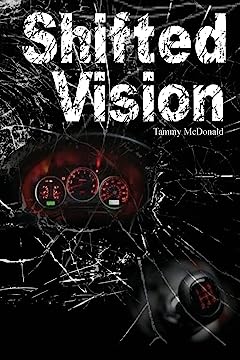
8. Offer words of encouragement to those who may be searching for comfort in their own chronic pain journey.
First of all, you are not alone in your suffering. Not only is God with you every painful step of the way, others know firsthand what you are going through. I had a youth pastor (many, many, many years ago ) who said that the best degree anyone could ever have is an IBT degree. It stands for “I’ve been there”
Find Your Chronic “IBT” Friends
Barriers, walls, and guardedness can be lessened or removed when you know the person you encounter has been there and honestly knows how you feel. Maybe not in the exact same way, but in their own isolating and painful journey. Find believers who have earned their Chronic Pain IBT degree. Make sure it is someone who has faith enough to help encourage you and build you up. Then as your faith grows, ask God to help you be that support for another.
Guard Your Inner Circle
Guard who you allow into your inner circle because if you are in a dark place and so are your closest fellow sufferers, it is a recipe for the darkness to compound exponentially. You need light bearers, and one day to become a light bearer for someone else.
Seek Professional Help if Needed
Mental health cannot be ignored in the Chronic pain journey. If you recognize or just suspect you or a fellow chronic pain sufferer needs support, have the courage to reach out for that support. Life comes from God, but there are times counseling and medical care through treatment and medication are needed. It isn’t a sign of failure, but of strength to seek out that support. If you can’t do that on your own, reach out to someone and let them know the level of darkness you are facing and ask them to help you get help. If you truly have no one, contact mandy or myself and we will do our best to help you connect with the support you need.
Thank You, Tammy
Thank you so much for sharing your story with me and my readers. These interviews always open my eyes to the trials of chronic illness. I pray that God will bless your ministry.
Connect with Tammy. You will find in her a great friend.
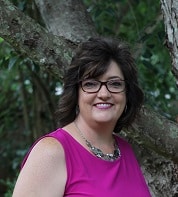
Author-Speaker- Life Coach
Email: shifted.vision@yahoo.com
To find HOPE for visit hopeforgrievinghearts.com
@ShiftYourVision
Tammy McDonald lives with her husband James in the Houston, TX area. She is the author of two books: Shifted Vision and Conquering the Grief that Stole Christmas. Both can be found on Amazon.
She isn’t new to the Chronic Pain world as she has had 18 surgeries and will continue to have them through the rest of her life to address the damage done to her body by Ehlers-Danlos hypermobility. She is in the process of launching a podcast as well as online support to share others’ experiences with clinging to God while living the life they never wanted.
Mandy’s Related Posts
If God is my Healer, Why Am I Still Sick?
What have you Chosen to Watch this Season? The Chosen
What is Ehlers-Danlos Hypermobility – Coming Soon
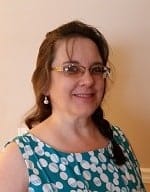
Pastor’s Wife (retired) & Chronic Pain Warrior blogs about how to make it through anything by relating her own life experiences to her writing. She is passionate about her love for the Lord and desires to spread that passion to others. She has a great desire to encourage women who are following behind her.

